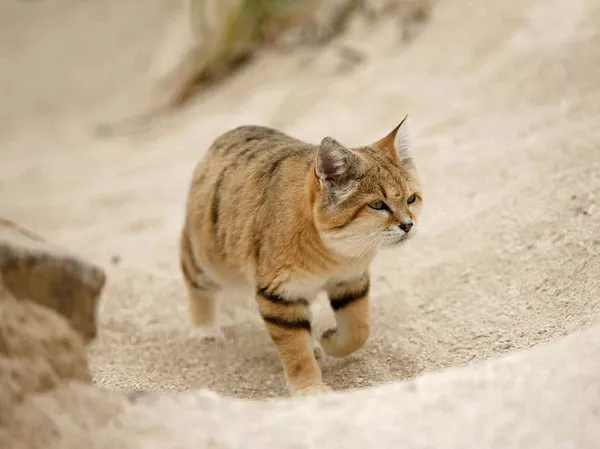Cats have been our companions for thousands of years, their mysterious and graceful presence adding charm to our lives. Among the many cat breeds, the Cornish Rex stands out for its distinctive appearance and unique qualities. One common question that cat enthusiasts ask is, “How long do Cornish Rex cats live?” In this essay, we will explore the lifespan of Cornish Rex cats and delve into the factors that influence their longevity.
The Cornish Rex Cat: An Enigmatic Breed
Cornish Rex cats are one of the most enigmatic cat breeds in the world. Their unusual appearance, characterized by their slender bodies, large ears, and distinctive curly fur, sets them apart from the rest. But their charm goes beyond their looks; they are known for their playful and affectionate nature. To understand their lifespan, we must first appreciate the uniqueness of this breed.
How Long Do Cornish Rex Cats Live: Unveiling the Mystery
Now, let’s delve into the central question of this essay: “How long do Cornish Rex cats live?” Cornish Rex cats generally have a lifespan of 12 to 15 years. However, many factors can influence their longevity. These factors are crucial in determining how long a Cornish Rex cat is likely to live, and we will explore them in detail.
Genetics and Inheritance: The Blueprint of Life
The genetic makeup of a Cornish Rex cat plays a significant role in determining its lifespan. The genes that control a cat’s health and longevity are inherited from its parents. Just as human genetics influence our predisposition to certain diseases, a Cornish Rex cat’s genetic background can affect its overall health.
Diet and Nutrition: Fueling a Long Life
Proper nutrition is fundamental to the health and longevity of any living being, and Cornish Rex cats are no exception. A balanced and appropriate diet can significantly impact how long a Cornish Rex cat lives. A well-thought-out diet can help prevent common feline health issues and promote a strong immune system.
Exercise and Activity: Keeping Them Agile
Exercise and physical activity are essential for maintaining a healthy weight and overall well-being in cats. Cornish Rex cats are known for their playful and active nature. Regular exercise not only keeps them in top shape but also prevents obesity and related health problems, contributing to a longer and healthier life.
Regular Veterinary Care: The Key to Longevity
Frequent visits to the veterinarian are crucial for the health and longevity of any cat, including Cornish Rex cats. Regular check-ups, vaccinations, and preventive treatments can help catch health issues early, ensuring that they are treated promptly and effectively. Early intervention can make a substantial difference in a cat’s lifespan.
Lifestyle and Environment: The Comfort Factor
The living conditions and lifestyle a Cornish Rex cat experiences also affect its lifespan. A stress-free and comfortable environment can lead to a longer and healthier life. Minimizing stressors and providing a safe and secure space for your feline friend is paramount.
Hydration and Clean Water: A Lifesaver
Proper hydration is a key component of feline health. Cats are notorious for not drinking enough water, which can lead to urinary tract issues and other health concerns. Providing clean and readily available water is essential to help Cornish Rex cats live longer, healthier lives.
Genetic Health Conditions: The Unpredictable Element
While genetics can be a blessing, they can also be a curse. Cornish Rex cats may inherit genetic health conditions that can impact their lifespan. Some of these conditions are unavoidable, and only diligent care and medical attention can mitigate their effects.
Lifespan and Quality of Life: A Delicate Balance
The lifespan of a Cornish Rex cat is not the sole measure of its well-being. The quality of life is equally important. Cats, like humans, deserve to live their years with comfort, happiness, and love. It’s not just about “how long do Cornish Rex cats live,” but “how well do they live.”
Common Facts About Cornish Rex Cats:
To provide you with a comprehensive understanding of Cornish Rex cats and their longevity, here’s a list of common facts and frequently asked questions about this unique breed:
1. What Is the Origin of the Cornish Rex Breed?
The Cornish Rex breed originated in Cornwall, England, in the 1950s when a curly-coated kitten named Kallibunker was born to a barn cat. This spontaneous mutation led to the development of the breed we know today.
2. What Are the Unique Physical Characteristics of Cornish Rex Cats?
Cornish Rex cats are known for their short, curly fur, which is soft to the touch. They have slender bodies, large ears, and striking almond-shaped eyes. Their distinctive appearance sets them apart from other breeds.
3. Are Cornish Rex Cats Hypoallergenic?
While no cat breed is entirely hypoallergenic, Cornish Rex cats are often considered a better option for people with allergies. Their short, fine fur produces fewer allergenic proteins and shedding is minimal.
4. Do Cornish Rex Cats Require Special Grooming?
Due to their unique coat, Cornish Rex cats do not need regular grooming like long-haired breeds. A gentle rubdown or brushing can help remove loose hair, but their fur is relatively low-maintenance.
5. Are Cornish Rex Cats Affectionate?
Cornish Rex cats are known for their high level of affection. They are often described as “dog-like” in their behavior, forming strong bonds with their owners and seeking constant attention and interaction.
6. How Do Cornish Rex Cats Behave with Children and Other Pets?
These cats are generally sociable and get along well with children and other pets, making them a good choice for families. Their playful and affectionate nature often makes them a favorite in multi-pet households.
7. Are Cornish Rex Cats Prone to Any Specific Health Issues?
Like all breeds, Cornish Rex cats can be prone to certain health issues, including hypertrophic cardiomyopathy (a heart condition) and patellar luxation (knee joint dislocation). Regular vet check-ups are crucial for early detection and treatment.
8. How Can I Extend the Lifespan of My Cornish Rex Cat?
As mentioned in this essay, several factors can positively influence the lifespan of a Cornish Rex cat. Providing a well-balanced diet, regular exercise, veterinary care, and a stress-free environment are key to helping your feline friend live a longer and healthier life.
9. Do Cornish Rex Cats Make Good Indoor Pets?
Cornish Rex cats are well-suited to indoor living. Their short fur doesn’t provide the same insulation as longer fur, so they can be sensitive to extreme temperatures. An indoor environment with plenty of stimulation and play opportunities is ideal.
10. Can Cornish Rex Cats Be Trained?
Yes, Cornish Rex cats are intelligent and can be trained. They respond well to positive reinforcement techniques and can learn tricks and commands with patience and consistency.
11. Are Cornish Rex Cats Rare and Expensive?
While Cornish Rex cats are not as common as some other breeds, they are not excessively rare. The price of a Cornish Rex kitten can vary, but they are generally considered a mid-range to moderately expensive breed.
12. Do Cornish Rex Cats Shed?
Cornish Rex cats shed very little due to their short, fine fur. This makes them a good choice for people who want a cat but are concerned about allergens and excessive shedding.
13. What Kind of Diet Is Best for Cornish Rex Cats?
A high-quality, balanced cat food is essential for Cornish Rex cats. Consult with your veterinarian to choose the right type of food and feeding schedule to meet your cat’s specific needs.
14. Can Cornish Rex Cats Live with Dogs?
Cornish Rex cats can adapt to living with dogs, provided that proper introductions are made, and both the cat and dog have agreeable temperaments. Supervision and a gradual introduction process are essential for a harmonious relationship.
15. What Should I Look for in a Cornish Rex Breeder?
When choosing a breeder for a Cornish Rex kitten, it’s crucial to select one with a good reputation, responsible breeding practices, and a focus on the health and well-being of their cats. Ask for references and visit the breeder’s facilities if possible.
Conclusion: Cherishing Your Cornish Rex Companion
In this exploration of the question “How long do Cornish Rex cats live,” we have unveiled the factors that influence the lifespan of these unique and beloved felines. The average lifespan of 12 to 15 years is a testament to the potential for a long and happy life with your Cornish Rex cat. With proper care, genetics, and a loving environment, your Cornish Rex can thrive for years to come. These charming, affectionate, and playful cats offer companionship and joy, enriching the lives of their owners and making every day a delightful adventure.
Cherish your Cornish Rex companion, and together, you can create many beautiful memories.
Related Topics:
A Pricing Guide to Cornish Rex Kittens
A Comprehensive Guide to Describe Cornish Rex Cats’ Appearance
The Irresistible Charm of Cornish Rex Cats: Exploring Their Friendly Nature

























